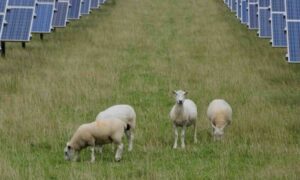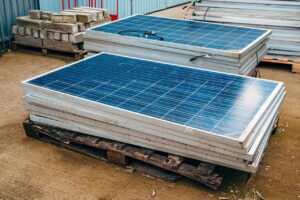During Melbourne’s recent spell of hot weather, my air conditioner got a workout after a long hiatus. Technically it’s a split system that also could have been used during winter, but like many Melbourne householders I also have a gas ducted heating system, and have never needed to use anything else for heating.
Gas heating systems are ideally suited to Melbourne’s cold winters. They heat quickly, it’s easy to control the temperature, and you don’t need to stand directly in front of a duct to feel the heat. Such systems have historically been very cheap to run. But in the next couple of years, major changes in the gas market will substantially increase the running cost of gas appliances for Australians.
More than A$63 billion has been invested in the gas export industry on Australia’s east coast, with the first tanker leaving Queensland’s shores earlier this month. With high international prices for gas, the boom in liquefied natural gas (LNG) will create jobs, boost economic growth, and raise significant tax revenue.
But it will also drive household gas bills upwards. For the first time, the amount we pay for gas will be linked to the price that gas exporters can obtain from other countries. Countries such as Japan are prepared to pay significantly more for gas than we currently do, so we will pay more as a result.
Recent events suggest that the scale of the LNG boom will be much lower than anticipated. Many LNG export contracts have price clauses linked to the international oil price, which has been rapidly falling in recent months. But in contrast to the way in which oil prices have reduced the price of fuel at the bowser, there will still be noticeable gas bill increases over the next couple of years.
International prices are still being passed through to consumers, and oil prices will eventually begin to steady. The cost of extracting gas from the ground has also increased significantly as more and more gas, from increasingly hard-to-reach places, is needed to meet international demand.
Even if international gas prices crashed tomorrow, it is unlikely we will ever pay the historically low prices for gas that we once did.
The cheaper option
Even before bills increase, the choice of gas over electric appliances is questionable. The Grattan Institute’s October 2014 report, Gas at the crossroads, shows that gas ducted heating in Melbourne already costs about A$700 a year to run, whereas reverse-cycle air conditioners can produce a similar amount of heat for only A$300. In Sydney, it costs about A$600 a year to run a gas hot water system, while an electric heat pump can do the job for half the cost. Some Brisbane households pay more than A$300 a year just to have gas cooking, when an electric cooktop would cost a mere A$40 to run.
Households can already make considerable savings by replacing a gas appliance with an energy-efficient electric one. Replacing all appliances means also avoiding the gas connection charge, typically about A$200 a year. It’s not so much that gas has become more expensive, it’s that electric appliances have become much more efficient.
Why, then, are so few households switching off gas appliances for electric alternatives? Many are not aware of the savings. Some people cannot be bothered looking for new appliances, or are renting and therefore don’t get to choose. Some just prefer using gas, because of the feel of gas heating or the control of a gas cooktop. Others will struggle to afford the upfront cost of a new appliance.
Whatever the reasons, no one likes being hit in the hip pocket, and governments will want to show they are doing something to help. But government schemes in the household energy market often have unintended consequences.
For instance, low-income households in most states get a rebate on their gas bill. Increasing this may provide some short-term relief, but it encourages households to stay connected to gas, which may be more costly in the long run.
Meanwhile, rebates for energy-efficient electrical appliances are most likely to be taken up by those who can already afford to buy new appliances, doing little to help the most vulnerable. Worse still, these rebates are typically funded by increasing the electricity bills of those who can’t afford new appliances.
Informed choices
There is a better way. Governments should ensure that consumers have the information to make informed decisions about their appliances. The Your Energy Savings website, which estimates the running costs of various electric appliances, is a good start, but more can be done to inform consumers about their gas appliances and how the price rises are likely to affect them.
Governments should also consider offering low-interest loans for energy-efficient appliances so that consumers pay off the cost of an appliance over time as they realise the savings on their energy bills. These loans could be targeted to low-income earners or even to renters.
For those who simply prefer using gas, myself included, it’s difficult to argue that governments should step in to protect such households from price rises. Why should we encourage the use of one energy source at the expense of another, let alone a less efficient one? The fact that gas heating may feel nicer than the heat from electric systems is not sufficient justification.
I have no immediate plans to get rid of my gas heating system – there is nothing better for keeping warm on a cold winter day. But the next time I need to take the morning chill off the house, I may just think of my gas bill and reach for the split system remote.
![]()
Source: The Conversation. Reproduced with permission.









